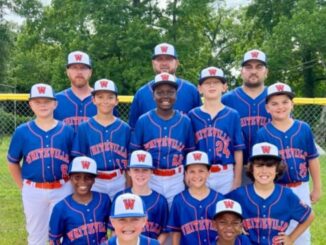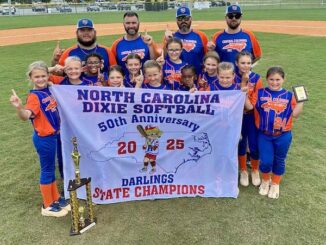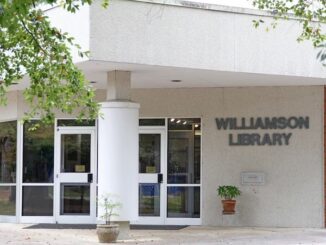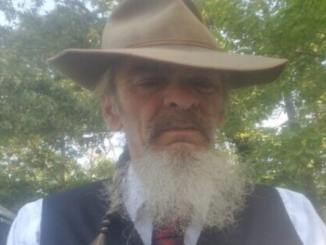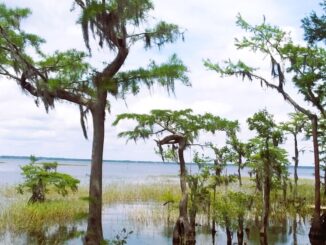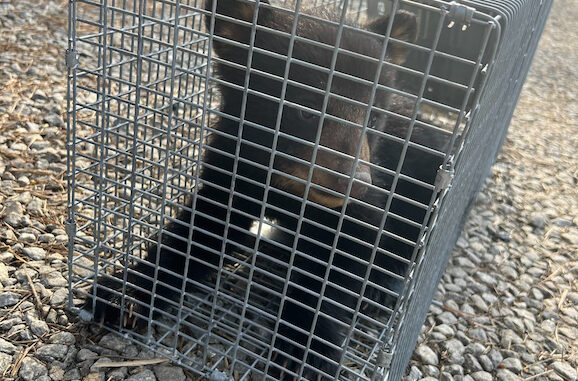
Charges won’t be filed against the Asheville residents who caught two bear cubs and took selfies with them last week.
The men and women pulled two baby bears from a tree behind an apartment complex and posed for pictures before one of the bears nipped the woman holding him. The bears ran away, but one was later found in a retention pond with minor injuries. The cub is now with a licensed rehabilitator, according to the Wildlife Resources Commission (WRC).
In a statement to the media, the WRC said officers have investigated this incident, and, while “dangerous and unfortunate, it appears to be an isolated event.
“It is unlawful in North Carolina to capture and keep black bears. However, the bear cubs were immediately released, and officers have determined there will be no charges filed. Both Wildlife Officers and biologists have spoken with the individuals involved about the importance of leaving bear cubs alone.”
WRC BearWise Coordinator Ashley Hobbs captured that cub and noted that it was in poor condition. “The cub appeared to be lethargic and frightened. It looked to be favoring one of its front paws and was wet and shivering,” said Hobbs.
“The cub’s condition is likely a result of the unnecessary and irresponsible actions of the people involved,” said Game Mammals and Surveys Supervisor Colleen Olfenbuttel.
“Ashley and our enforcement staff searched the area for the second cub but did not locate it. Our hope is it was able to reunite with the mother because it would not survive on its own at this young age,” said Mountain Operations Supervisor James Tomberlin.
This incident remains an active investigation.
“This time of year, mother bears are emerging from their den with their cubs that are experiencing the outside world for the first time and are very dependent on their mother to feed and protect them. People who try to capture or handle a cub are not only risking the cub’s safety, but their own if the mother bear is nearby, as she may try to defend her cubs,” Olfenbuttel said. “Even if you don’t see the mother bear, she could be nearby, and the cubs are waiting for her to return. By trying to capture a bear cub, you may cause it to become orphaned, injured or both, as we saw occur in this incident.”
Wildlife biologists advise that a bear cub seen alone is rarely orphaned or been abandoned. Often the mother bear is nearby foraging for food and will return in a few hours. Remaining in the area or attempting to catch the cub could inadvertently separate it from its mother and possibly injure the cub.
Spring is prime time for bear cub encounters, especially after the two-year-olds are ejected from the nest and make their way into new territory. Females will also be foraging for food to produce milk for the cubs born during the winter.
Bear sightings in Columbus County, especially around Lake Waccamaw, typically rise during May and June.
The public should contact NCWRC if they suspect they’ve encountered an orphaned bear cub. If you believe a cub has been orphaned, do not attempt to capture it. Instead, give the mother plenty of room and time to reconnect with her cub. To avoid harming yourself or the bear cub:
- Do not handle it.
- Do not attempt to catch it.
- Do not remove it.
- Do not feed it.
- Do take note of your location and call the NC Wildlife Helpline (866-318-2401). If after hours or on weekends, call adistrict wildlife biologist to report it.
After receiving a report of a suspected orphaned cub, NCWRC staff will determine if a cub is orphaned, and if so, are trained to properly and safely capture and transport to one of the agency’s licensed bear cub rehabilitators for immediate care.
If you find a truly orphaned cub, Olfenbuttel said, do not feed it.
“Food is not often the first thing the cubs need. Cubs require a very specialized diet. Powdered formulas purchased from the store, or other foods (pet food, fruit), can severely compromise their health.
“The rehabilitators know the treatments and specialized food needed for cubs during this vulnerable time. Do not trust resources on the internet about feeding and caring for a cub,” Olfenbuttel added. “Instead, call our N.C. Wildlife Helpline immediately. It is illegal in North Carolina to capture or keep a black bear cub.”
Olfenbuttel added, “It’s imperative for the public to never feed a bear of any age. This will cause it to become habituated to people, making it more challenging for successful rehabilitation back into the wild. Last year, an orphaned cub was kept and fed by people and despite our rehabilitator’s best efforts, the cub was too habituated to be successfully released back in the wild.”
In addition to not feeding bears of any age, Offenbuttel said you should take photos from a distance, and not get up close and personal with any wildlife.
“While it may seem obvious to most people, always remember one of the BearWise Basics, which is not to approach or try to take selfies with black bears, whether they are cubs or adults.
“It often does not end well for people or the bear, as we saw in this incident,” said Olfenbuttel.
Visit the NCWRC blog to learn more about the black bear cub rehabilitation program.








